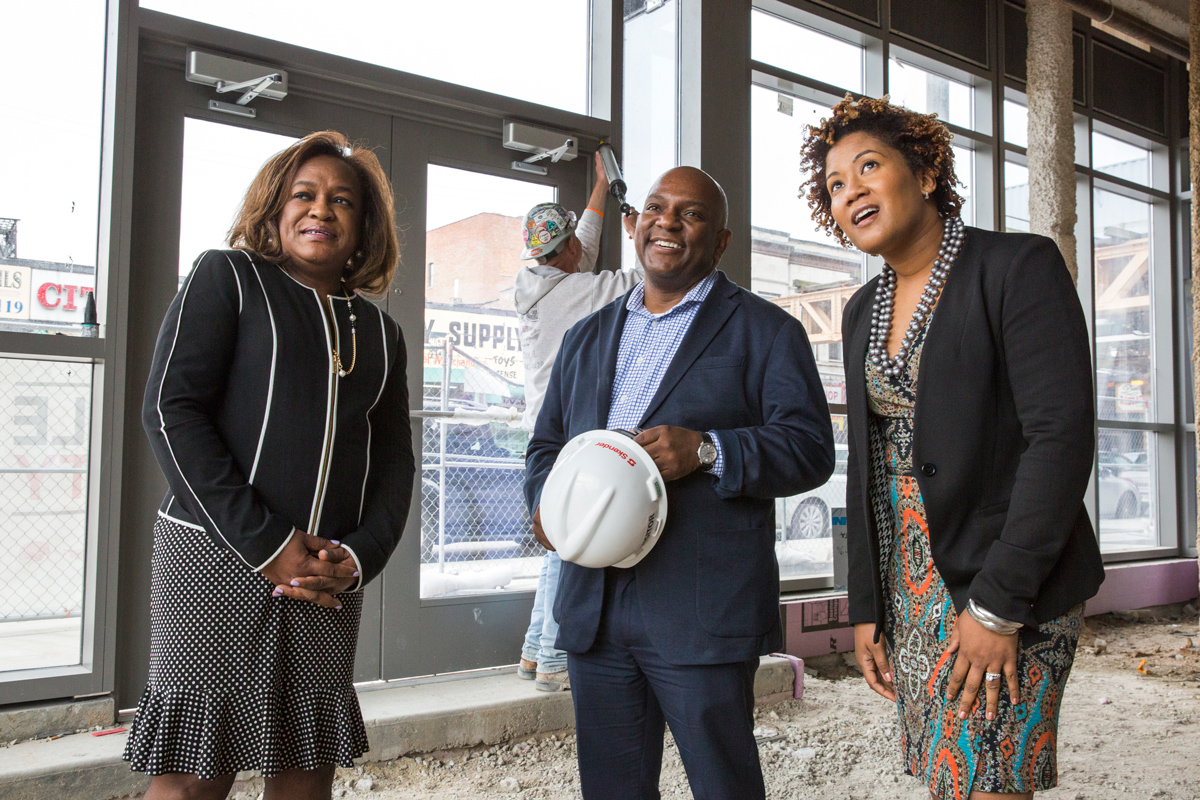Chicago TREND combines grassroots data and sophisticated buying-pattern analyses to identify stores, services, and shoppers for neighborhoods in transition.
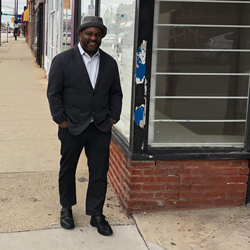
Lyneir Richardson stands outside a boarded-up building on a barren block in Chicago's Brighton Park neighborhood. Around him, he envisions a vibrant, bustling area with businesses that other communities take for granted.
He has data to back him up.
Research by Richardson's company, Chicago TREND, shows that the area has the potential to blossom with retail stores and other amenities. He believes developing the whole block could be transformative, but for now he is focused on helping the property owner attract tenants to this one building, which he calls "a flower in the concrete."
"We are always looking for neighborhoods that are on the cusp of change," Richardson said. "You're looking for stability, traffic, housing values, crime rates, and evidence of other investment."
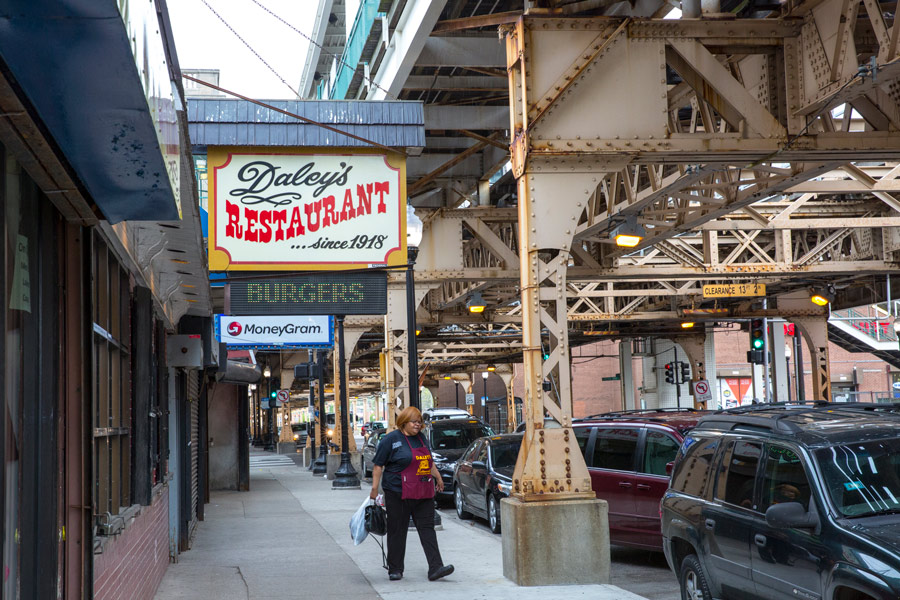
Chicago TREND, short for Transforming Retail Economics of Neighborhood Development, provides a unique combination of grassroots data and sophisticated buying-pattern analyses to identify stores, services, and shoppers to neighborhoods that are in transition. It then works to attract national—and increasingly local—retailers to assemble the right mix of stores and services for the location and residents. TREND's end game is to strategically inject capital into commercial corridors that are ripe for investment, which in turn will appeal to new shoppers and help grow the local population.
To accomplish this goal, TREND works with the Chicago Community Loan Fund (CCLF), whose mission is to support the economic revitalization of Chicago's low- and moderate-income neighborhoods. Once TREND identifies retail opportunities in targeted neighborhoods, it works with prospective borrowers to test their projects' market feasibility, strengthen their business plans, and help package proposed transactions for CCLF.
To date the firm has identified more than eight projects, representing projected cumulative investment of roughly $5 million, which it will present to CCLF for approval within the next year.
TREND is the result of a research project on what retail amenities are necessary to strengthen neighborhoods. For three years, it developed data and analytic tools supported by market research, focus groups, and a rigorous shopping behavior survey involving more than 16,000 people in Chicago. It also analyzed more than 27,000 shopping trips in neighborhoods.
In addition to the details of participants' recent shopping trips and their demographic characteristics, the survey also asked about quality-of-life issues such as housing, retail amenities, public transportation, and crime rates.
"Over 60 percent of respondents said they were somewhat to very likely to move within five years," said Richardson, the company's CEO and co-founder, who has a wealth of on-the-ground retail experience in urban areas.
Availability of nearby retail amenities are a critical consideration when residents make a stay-or-leave decision, he said. The survey respondents rated sit-down restaurants and full-service grocery stores as highly desirable, in addition to low crime and quality housing near retail and transit options.

Robert Tucker, CCLF’s chief operating officer and executive vice president of programs, said TREND and CCLF are pursuing an innovative approach to gathering information to provide flexible capital to developers, property owners, and retail operators, most of whom are people of color.
"Sometimes when you keep doing the same thing over and over and don't have successes in some of these neighborhoods, you need to look at it differently," Tucker said. "TREND provides a unique tool and expertise for us."
TREND's co-founder, Robert Weissbourd, is a former Shorebank Corporation executive who is now president of RW Ventures, LLC. While it is too soon to have formal statistical proof of the projects' impact, TREND is confident about its approach based on market demand, anecdotal evidence, and early results.
TREND plans to gauge the success of its initial efforts by initiating a formal impact assessment in 2021.
The company has identified several African-American entrepreneurs with the potential to expand their businesses and, working with CCLF, has helped provide them with access to capital. TREND started out trying to attract national retailers but focuses now on local entrepreneurs who understand a neighborhood's "nuances" better.
In Woodlawn, CCLF made a loan for $350,000 to help finance the build out of six spaces for retailers on the first floor of Woodlawn Station, a mixed-use affordable housing project at 63rd Street and Cottage Grove in Woodlawn. The project's developer, a nonprofit organization called The Preservation of Affordable Housing, signed leases with anchor tenants, including Daley's Restaurant, a South Side landmark.
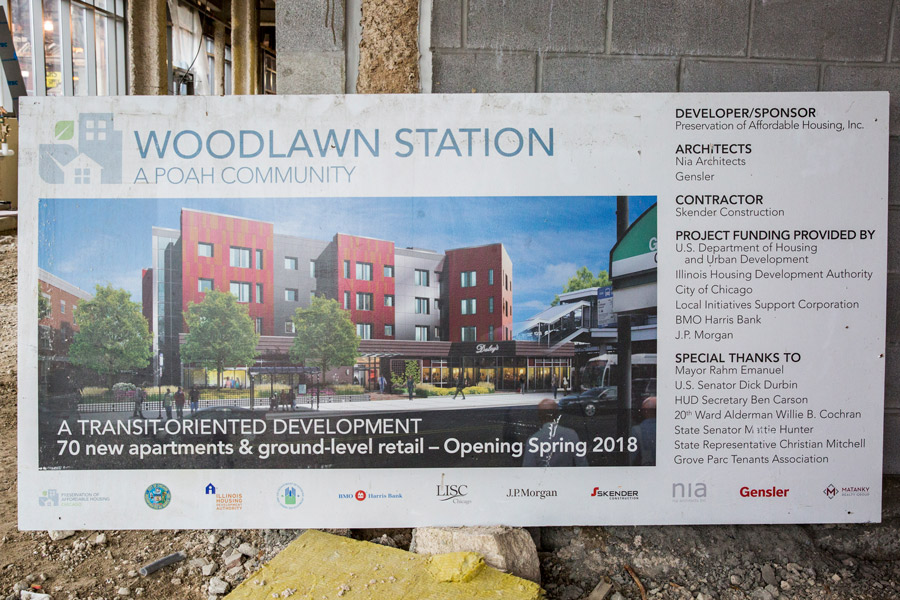
At least four tenants are expected to operate in the commercial space of the mixed-use building, including a UPS store, which will be owned by the husband-and-wife team of Rex and Monica Ingram.
Rex Ingram, an Army veteran and financial consultant, believes the retail location will help transform the neighborhood and pave the way for more business development. He said a Jewel-Osco supermarket that opened in March at 61st Street and Cottage Grove already is helping revitalize the community.
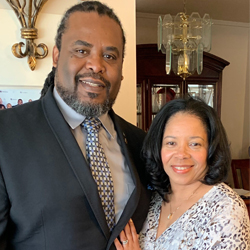
"We look forward to opening and bringing more business services and amenities to the area," said Ingram, crediting TREND for helping the couple choose the right location. "TREND opened the door for us to be able to make decisions and put us in front of different franchises so that we could make decisions that would suit us best."
TREND's very first project was a health clinic that is helping to reinvigorate an important retail corridor in Chicago's South Shore neighborhood.
The commercial real estate developer behind the project, Leon Walker, manager of DL3 Realty, said TREND and CCLF helped finance the clinic with a second mortgage and "favorable" lending terms. The new facility is now adjacent to a childcare center, the Children's Developmental Institute.
"I try to see value in people and places that other people overlook or undervalue," Richardson said. "Ultimately, the success of our work will best be measured five to ten years from now. That's when we will know we're successful, because the neighborhoods will be stronger."
MacArthur provided a $5 million program-related investment and $1.4 million grant to the Chicago Community Loan Fund for its work with Chicago TREND to support neighborhood retail shopping development in transitioning Chicago communities.
Read More
Reflections on Building Chicago’s Inclusive Economy
Tawa Mitchell, Senior Program Officer, Chicago Commitment



